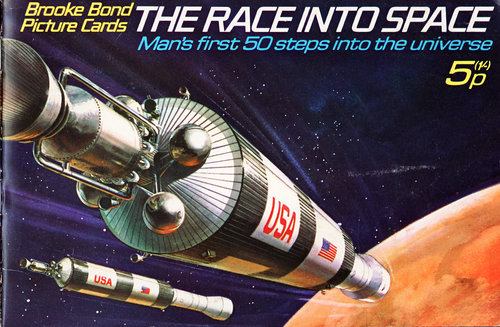How about Hubert Humphrey ? he was LBJ vice-President, a pretty good man AFAIK, and barely lost to Nixon in 1968. With Humphrey, no CREEP, no plumbers, no Watergate. an interesting twist would be that LBJ dropped THE 1968 campaign: that Nixon was screwing up peace talks with the Viet-Minh just to piss him and make Humphrey lose. LBJ chose not to drop that atomic bomb, had he done it, maybe - maybe - Humphrey could have won.
There is somewhere on the web a fascinating document: Von Braun Mars sales pitch to Nixon Space Task Group. Date: August 4, 1969. In the post-Apollo 11 euphoria and (rather hauntingly) only four days before the Mansons murders split the nation.
Von Braun had two options
- 1986 (hello, Voyage novel) if budget and technology were not pushed. Hence Mars landing: early April 1986 .
- 1982, exactly on August 15, 1982. The earliest possible date, busting the budget and the technology and taking many risks.
While Baxter did a pretty good job imagining the 1986 option - although on a sour-grappe, and low-key attitude - what remains to be done is the opposite - a "triumphant 1982 landing with nuclear rockets" novel.
I frequently think about it... August 15, 1982. Assumption of Virgin Mary day, how about that ! Virgin Mary lifted off like a rocket... and landed on Mars (ok, this is silly, admittedly).
1982 was a pretty shitty year.
Falkland war, Israeli war, Lebanese massacres, Formula 1 got two dead and one badly hurt (Pironi, Paletti, and the great Gilles Villeneuve) Indianapolis got a truly horrific crash, too (Gordon Smiley: he crashed at 210 mph straight into the concrete barrier and was killed and badly mauled and unrecognizable, don't you ever browse this crash on You Tube, it is sickening).
War, death, misery all over the place. Not unlike 1968, you know, the year that was saved by... Apollo 8.
Hence landing a man on Mars might have saved a very shitty year. I say that as someone who was born on May 16 of that very year.
I often think that, had Von Braun got what he wanted and men landed on Mars on August 15, 1982 I would be the most unhappy space nerd in history: not born for Apollo 11, and a three month toddler in a craddle for Mars. Dang.
Back in 1968 Boeing had the IMIS concept, a fabulous nuclear Mars ship.
http://up-ship.com/blog/?p=40261
von Braun 1969 Mars sale speech to the STG was pretty much IMIS happening in 1982.
Meanwhile Rockwell was busy imagining - right from 1968 ! - the flight test program of the Mars Excursion Module. Baxter hijacked OTL STS-1 shuttle flight into Crippen and Young flying a reinforced, beefed-up MEM through Earth atmosphere for a complete reentry testing. Unlike Apollo 9 LM, a reinforced MEM could land on Earth.
MEM Flight testing as imagined by Rockwell would have been something like
- launch an unmanned MEM in orbit, let it soak there for 200 days to see how it ages in space
- launch a manned, reinforced MEM in Earth orbit, and make a descent through the atmosphere
- land a modified MEM on the Moon (!)
Pretty cool when you think about it: the MEM, first craft ever to land on three different planetary bodies (Earth - Moon - Mars !)
The MEM was so heavy, around 130 000 pounds, only a Saturn V could do the job but would be massively overkill. Alternatively, an INT-20 would be perfect (S-IC + S-IVB, no S-II).
It would be the exact same shape as an Apollo CM, with a touch of LM inside, the bastard child of these vehicles and, somewhat ironically, a return to the 1960-62 Direct Ascent Apollo vehicle.
the plan for the NERVA was to have three of them, after Earth escape the lateral vehicles would return to Earth orbit (yikes !) while the middle-one would be dumped into the inner solar system, hopefully never returning...
There were some troubling issues with NERVA. A Bellcomm memo from 1971 warned that a NERVA firing could be dangerous as far as 100 miles, downstream of the exhaust. Neutrons from the three NERVA side-by-side would tend to mess things up.
not quite as disastrous as Baxter put it in the novel, but certainly a very hot potatoe in every sense of the word. Von Braun talked about reuse of the nuclear shuttles for lunar missions, but it would have been pretty dangerous.
Also every manoeuver past Earth escape would be chemical, no way they carried a NERVA up to Mars.










